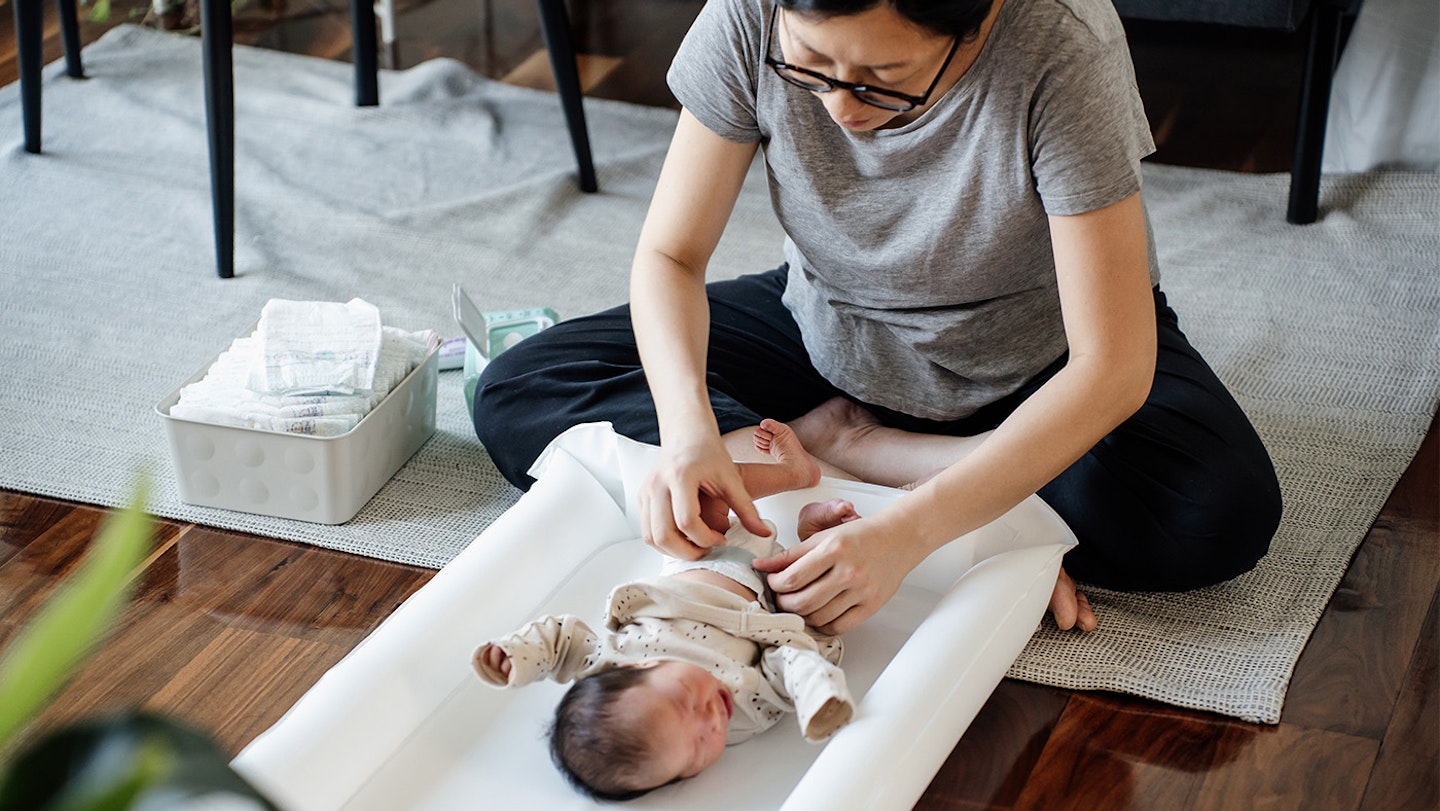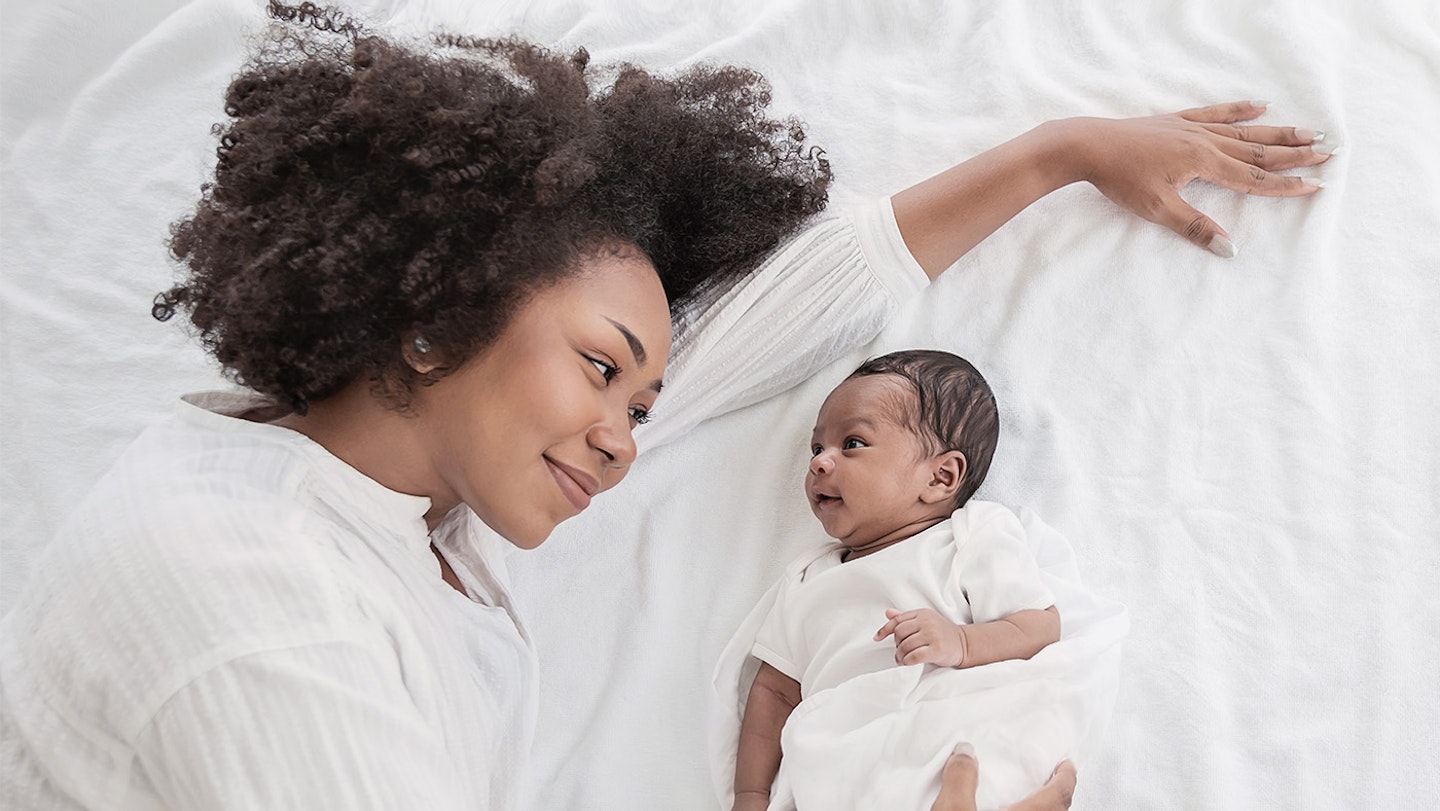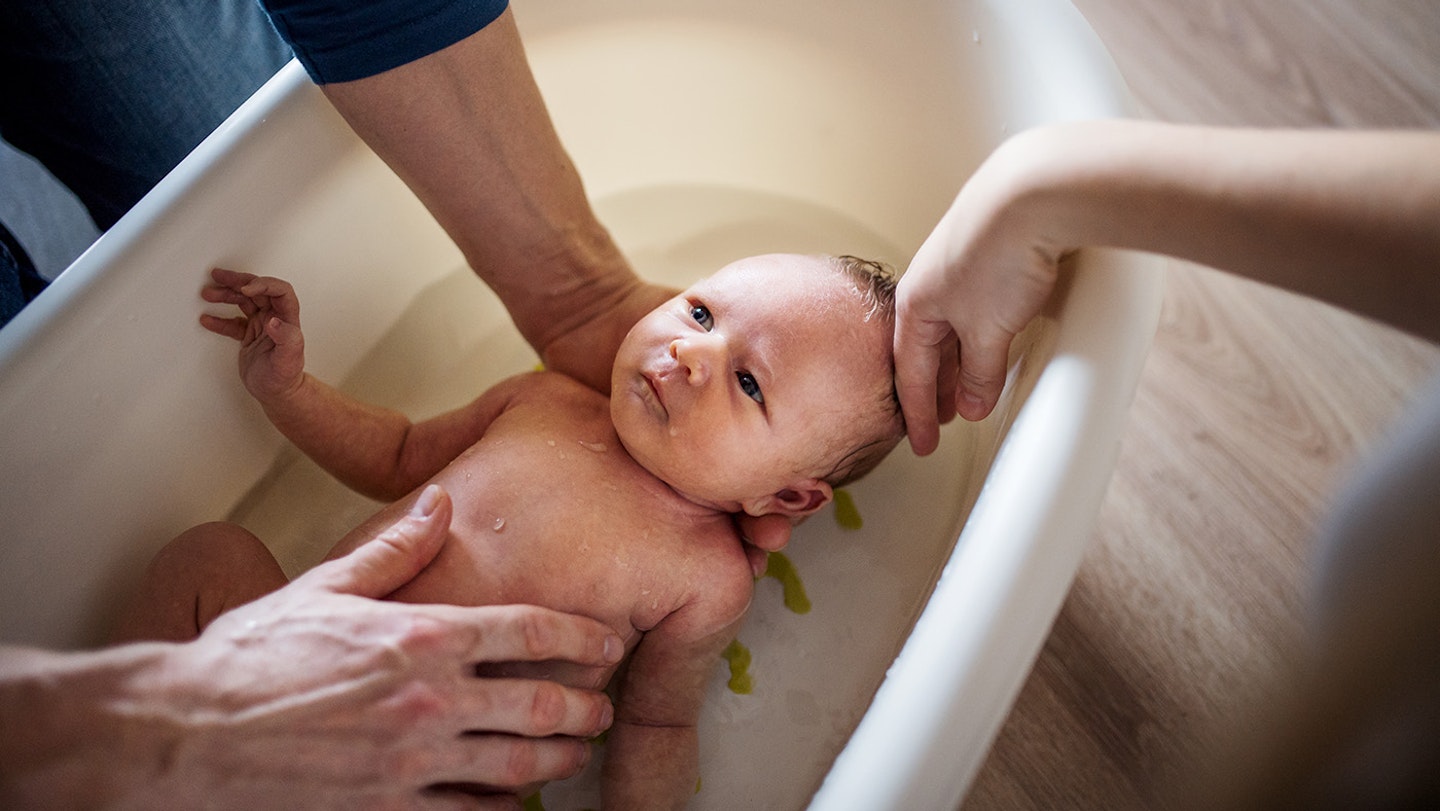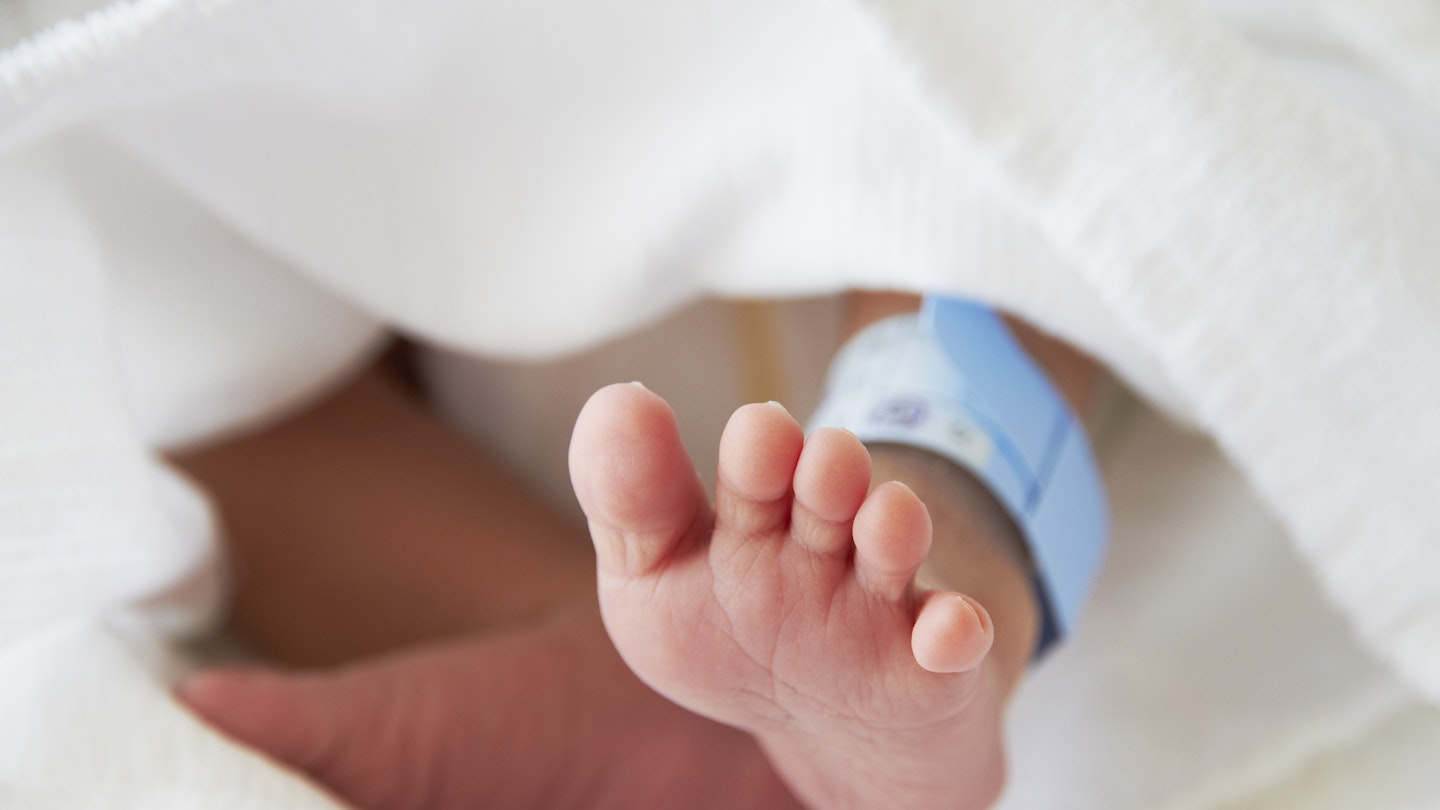You'll no doubt be thinking that the first week with your new baby has completely raced by and it only feels like yesterday that you were cradling your newborn after they finally made their grand entrance into the world. Although it's early days, your 1-week-old baby is already hitting lots of exciting baby milestones.
It's natural that everything feels overwhelming right now, but don’t fear, in this guide, we've got everything you need to know about that pivotal first week in your new life with your new arrival and their week-by-week development.
First things first, you’re bound to feel every emotion under the sun after arriving home with your newborn. The baby blues usually set in after about three days when your milk comes in and causes a new stir of hormones, so you may feel tearful, irritable and exhausted despite being elated with your new arrival. Don’t worry too much if you’re feeling unsettled, you’ve just given birth to new life, you’re bound to be out of sorts. Give yourself a break!
1-week-old baby development
At one week old, your baby will have instinctive brain function, which is to know how to breathe, feed, sleep, and poo. They won’t yet be able to fully perceive everything, think properly, remember things, understand language or have full physical coordination.
"At this age, your baby will have several reflexes such as the rooting reflex (for example, when their cheek is stroked, they will react and turn in that direction) which helps them locate the breast or bottle to feed, and the startle reflex when they hear a sudden noise or feel a sudden movement," explains midwife and co-founder of The Baby Academy, Susan Hogan.
In the first week, your newborn will be moving their arms and legs an equal amount. If one arm isn't stretching as much as the other, it may be an injury or a weakness.
It is likely your newborn will lift their head briefly when placed on their stomach so make sure to support their head at all times. Don't forget, you can start tummy time right from birth. This will help with their motor skills in preparation for crawling and rolling over.
Your baby is just about getting used to being in the real world but they should be able to see about 25cm in front of them. "Their vision is still developing, so they will mostly see high-contrast patterns, and prefer to look at faces," says Susan.

1-week-old baby growth
Don’t worry if your newborn doesn’t look as expected, the babies on TV are never actually one week old. In reality, your baby is likely to be much more wrinkled and squashed after living in a tiny liquid-filled space for 9 months and squeezing through the birth canal!
So, if your baby’s skull looks longer than you thought it would, it’s completely normal. Plus, their legs and arms will remain in the same position as they were in the womb and then straighten out over a few weeks. If they seem uncomfortable or fussy, try swaddling your little one to recreate the feeling inside the womb.
Newborns are also prone to swollen genitals with white spots on their faces and blue-tinted skin. They can also be covered in vernix, a white/yellow waxy substance more common for babies born prematurely.
It's common for your little one to lose weight in the first few days after birth and most newborns will leave the hospital weighing less than they were when first checked in by the midwife. Babies who are breastfed won't reach their birth weight again until they are 2 weeks old while formula-fed babies will gain weight sooner.
How much should a 1-week-old baby be sleeping?
Newborns sleep between 16 to 18 hours a day, but unfortunately for you, it’s not all at once (or when you want it!) Your newborn will typically sleep for two to four hours at a time through the day and night, making your schedule irregular and tiring. You’re likely to be up a lot during the night to comfort, change or feed them in the first few weeks.
How much should a one-week-old baby be eating?
The answer to this depends on whether you’ve chosen to breastfeed or not. Breastfed babies usually need less milk than formula fed. However, because babies can’t control their milk intake from the formula, they may vomit if they drink too much.
"Your one-week-old baby will likely feed 10-12 times a day," advises Susan. "And if formula feeding they will feed approx 1-2oz per feed."

How can you tell how much milk your baby is getting when breastfeeding?
Since it’s difficult to know whether your baby is getting enough to eat as you’re getting used to breastfeeding, it’s useful to look out for the following signs:
• Your breast should soften during feeds
• They should be softly swallowing
• They come off your breast on their own
• They seem settled after a feed
• Their poo goes from being dark to yellowish and softer
• They’re wetting their nappy every few hours
Breastfeeding usually lasts about 40 minutes, with your baby switching breasts every 5-30 minutes, depending on how long they want to feed for and how much milk is in each breast. The length of time is nothing to worry too much about, if your baby is latching on and feeding for as long as they need on each breast they will be getting all the nutrients they need.
Don’t fear if you notice some weight loss after your baby is born. By the end of the first week, your baby should start putting on weight again.
How much should a 1-week-old baby be pooing?
When it comes to your baby's pooing schedule, you’ll be happy to know one bowel movement a day is no cause for concern. Newborns can poo up to ten times a day, so anything between one and ten and you’re within the norm.
One might not sound like enough, but as long as your baby is wetting their nappy five or six times a day, they’re getting enough to eat. That said, if your baby seems uncomfortable or has a swollen abdomen, it's best to book an appointment with your GP.

What colour should my baby's poo be?
In the first week of your baby’s life, you will see the colour of their poo change. At the earliest stage, your 1-week-old’s poo will be thick and dark green due to the meconium that builds up in the intestines during pregnancy. As the days go on, they will expel the meconium and the bowel movements will become more yellow. If you are breastfeeding, the colour also depends on what you're eating or the type, or the formula being fed, plus how hydrated your baby is.
1-week-old baby health
Constipation: You may be overly worried about this as you get used to those first few nappy changes. Look out for a loss of appetite, crying and discomfort before doing a poo, less than three bowel movements a week or a dry hard poo. If you notice these things, contact your GP as they are all signs your baby might be constipated.
Reflux: Your newborn is bound to spit up straight after a feed, but if it becomes excessive or constant it may be a sign of reflux.
Hiccups: Common in newborns and babies up to 12 months, hiccups rarely disturb your baby like they do adults. In fact, babies can even sleep through hiccups. If you do want to help get rid of them, try burping your baby. You only need to seek out a doctor if your baby’s hiccups appear to upset them.
Skin peeling: This can start before you even leave the hospital and is completely normal. Your baby has been covered in amniotic fluid, blood, and vernix, so once the vernix has been wiped away by a nurse your baby will begin to shed the outer layer of their skin. The amount varies depending on how much vernix covered them during birth, the more they had the less they peel, which changes according to when you deliver - premature babies tend to have more vernix.
Cross-eyed: This is super normal, as your baby is still learning how to work her eyes and is unable to focus properly on anything more than 25cm away. It can also be due to epicanthal folds, skin on the eyelid, which usually disappear within a year.
Fussy: Making the huge adjustment from living inside the womb to out in the world, babies are bound to be fussy in the first week. Whether it’s trouble latching on or general discomfort, it’s completely natural for your baby not to settle straight away.
Jaundice: Your baby’s skin and eyes may appear yellow in the first few days of being born, this is common and nothing to worry about.
Eyes rolling back: This is common in babies that are sleepy, which your one-week-old will be all the time. As they try to fall asleep or wake up, you may notice their eyes rolling back under drooping eyelids. Don’t worry, it’s normal in this state of drowsiness.
Eye discharge: Your baby’s eyes may appear sticky because the tear ducts in newborns are usually narrower and allow for accumulated tears to block them, making them look sticky when they dry. If this isn’t excessive, it is a normal issue and you can clean your baby's eyes softly with cotton wool and water that has been sterilised by boiling and then allowing it to cool. Ensure your hands are clean and you use a new piece of cotton wool for each eye to prevent causing infection. If the discharge is excessive or becomes yellow/green, or your baby’s eyes look red or swollen, contact your GP.

New baby tips
Survive the nights
Don't panic, one day your baby WILL sleep through the night eventually. Help your baby differentiate between night and day by keeping nighttime quiet, dim and with minimal interaction. Day means light, noise, and interaction. It's also important to go outdoors during the day as natural light will help regulate your baby's body clock.
Leave the umbilical-cord stump alone
The stump of your baby's umbilical cord should be left to fall off by itself. This normally happens between five and fifteen days after birth, but it will dry out and turn black first. However tempting it might be, don't pick at it!
Bathe once a week
"It is not necessary to bathe your baby every day, once a week is perfect!" says Susan. "However, you can give them a sponge bath if they have been sick or have had a very dirty nappy. You should keep the umbilical cord stump clean and dry, and avoid submerging it in water."

Keep an eye on hydration
If you feel like your baby isn't feeding well, it's always a good idea to get them checked by a professional. A baby can become dehydrated in a matter of hours if they've got a fever, is vomiting or has diarrhoea.
Don't fret over the heel-prick test
When your baby is five days old, they'll have the heel-prick test. These four drops of blood are taken to be tested for certain conditions, which are all very rare, so try not to worry.
Your mental health: Postnatal depression
Four in five women experience the baby blues in the first week after giving birth, but many worry it’s a sign of something more serious like postnatal depression. Generally speaking, the baby blues tend to dissipate when your hormones calm down. So, if you continue to feel low and overwhelmed for more than a couple of weeks post-birth, you may want to seek help. You can also develop depression prenatally, so if you were worried, give your doctor a ring. Don’t let any feeling of guilt get in the way of getting help, postnatal depression affects 1 in 10 women so there’s nothing to be ashamed of.
About the expert
This article contains expert advice from midwife and co-founder of The Baby Academy, Susan Hogan. Sue’s main mission in all of the work she does is "supporting new families, helping them to feel confident and in control during their pregnancy, their birth and as they grow as a family unit."
